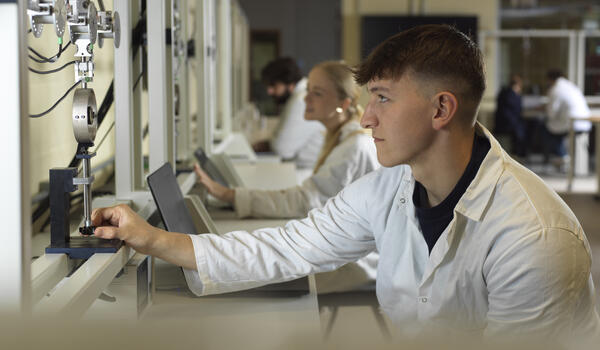Chemistry research is at the forefront of addressing many global challenges. Whether in sustainability, energy, materials, pharmaceuticals and medical treatments, or furthering our understanding of the world, developing new knowledge is a vital step in our future.
Building on the projects completed previously, this project will have a significant research focus. Develop extensive research experience and skills by conducting an open-ended, extended investigation into a contemporary research problem alongside one of our academic research groups.
Advance your practical and theoretical research skills in a specialised area of chemistry, gaining experience in advanced professional skills within a chemistry context. This will allow you to further develop independence and resilience, while still being fully supported and guided, providing a clear practical demonstration of what you have learned across your degree. It also serves to prepare you for a future in chemistry research, whether in industry or in further study.
This focus of this module is computational and theoretical chemistry. Delve into frontiers in computational electronic structure theory, and the various advanced computational techniques that can be used to quantitatively predict the fundamental properties of molecules.
If (bio)inorganic and materials chemistry is where your interests lie, this module will build upon your previous knowledge of the area. Delve into the design, synthesis, and characterisation of novel materials with applications in health, energy storage, electronic devices, and sustainable technologies. Emphasis is on the integration of theoretical principles with practical applications.
This module will be of particular interest to you if you would like to concentrate on drug design and advanced organic synthesis. You will explore frontiers in organic chemistry, emphasising the design and synthesis of complex organic molecules and their applications in diverse areas (e.g. materials, drug discovery). You will touch on modern synthetic methodologies, including photochemistry, metal catalysis, and stereoselective reactions and other sustainable methods.
This module provides further insight into spectroscopic techniques. You will focus on frontiers in spectroscopy from a physical chemistry perspective and will include illustrations of how spectroscopy informs real-world applications of modern chemistry research.



.jpg)
.jpg)
.jpg)